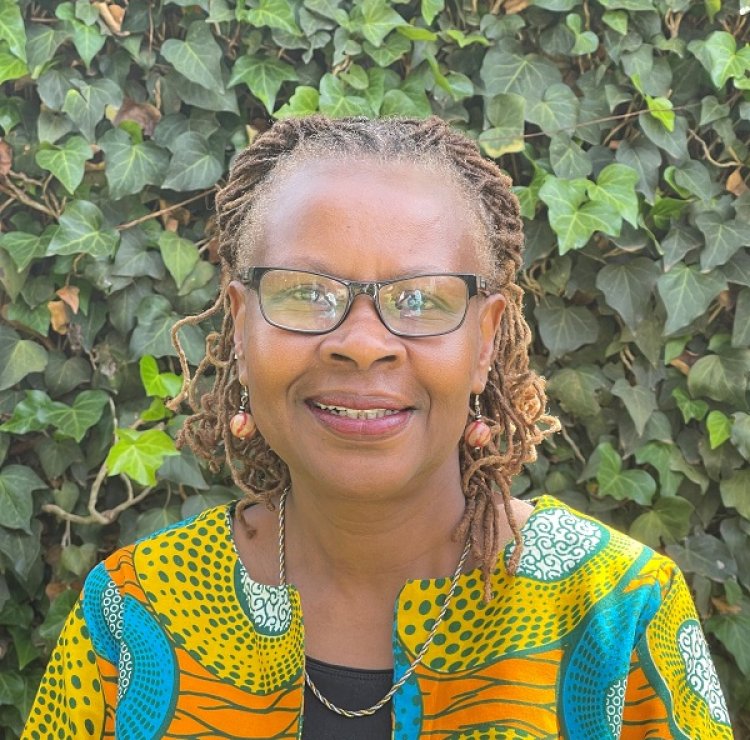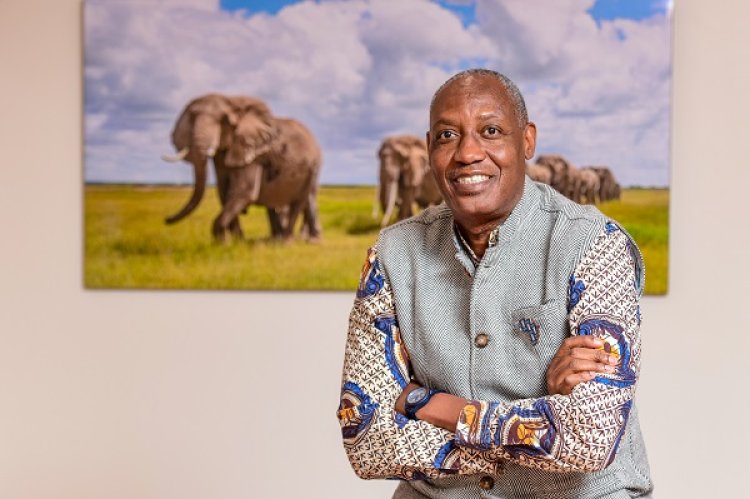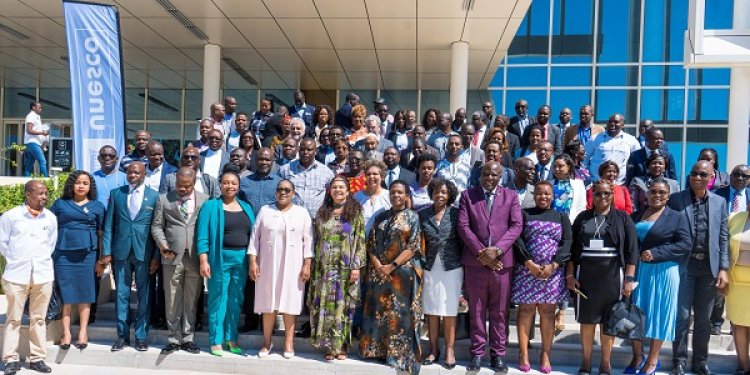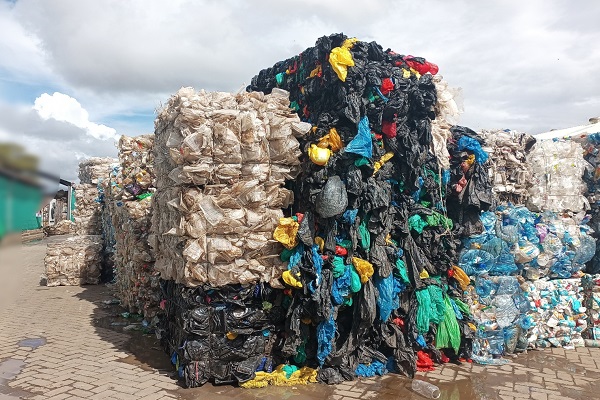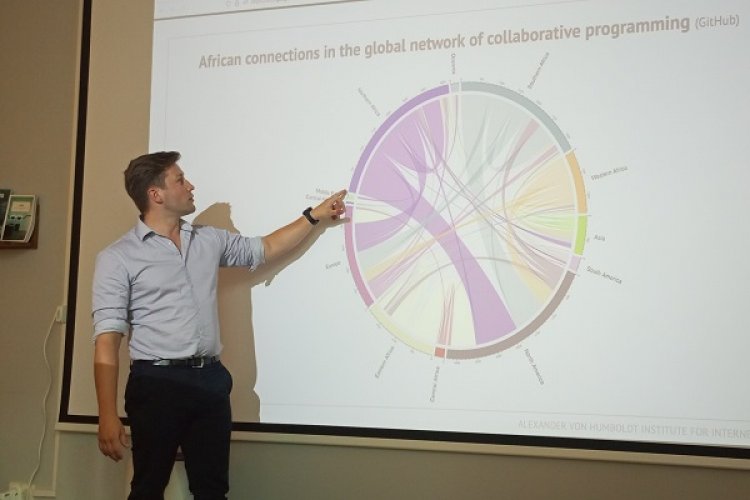Female policy makers in Rwanda and three other African countries stand a chance to benefit from the ongoing Gender Responsive Agriculture Systems Policy (GRASP) Fellowship organized by the African Women in Agricultural Research and Development (AWARD).
Funded by the United States Agency for International Development (USAID), the programme targets mid-career African women in the policy field to catalyze the design and implementation of gender-responsive agricultural policies across the African continent.
Dr Susan Kaaria, Director of African Women in Agricultural Research and Development (AWARD) spoke to us broadly on the role of female researchers and why they are the hope for the continent.
Below are excerpts
—————
What role does your organization play in ensuring that African women researchers deliver in the field of science and agriculture research?
One of our goals at AWARD is to support women to not only become outstanding scientists but also effective leaders of agricultural research and development agendas.
Through our flagship AWARD Fellowship, we offer tailored career development fellowships to competitively selected women researchers to enhance their leadership and scientific skills.
The AWARD Fellowship has offered unparalleled opportunities to women researchers in Africa, cultivating a growing pool of women to be (a) effective within institutions supporting the agricultural research and development; (b) effective across a range of research disciplines serving the sector; (c) responsive to gender issues; and (d) technically competent to generate innovations needed by rural smallholders, most of whom are women.
Our model in the Fellowships emphasizes intergenerational learning and continental collaborations, ensuring that our research systems benefit from the wealth knowledge and talent available on the continent and beyond.
The uniqueness of AWARD’s holistic career-development programs results in sharpened skills in research and publishing, mentoring, team management, and leadership, all conducted with a gender lens.
Part of the organization’s objective is to have a whole cadre of capable and influential scientists leading critical innovation in agricultural research. Has this been achieved?
To date, a total of 1,691 researchers from 40 countries have benefitted from our Fellowships in various capacities as either Fellows, Mentors, or Fellows’ Mentees. Our largest community of beneficiaries is in Nigeria, followed by Kenya and Ethiopia.
We are seeing AWARD Fellows make remarkable contributions as researchers and grow in their careers to lead agricultural and natural resource management research and innovation across the continent. AWARD Fellows have grown to become vice chancellors and deputy vice chancellors of leading universities, top female scientists leading research agendas and policies on the continent.
Looking beyond the individuals to strengthening institutions has prompted us to invest in coalescing our growing alumni into country chapters through which we can foster concerted efforts towards transformative changes within the countries.
We now have 11 country chapters established and registered in 11 countries including Ethiopia, Kenya, Ghana, Malawi, Mozambique, Nigeria, Rwanda, Senegal, Tanzania, Uganda, and Zambia.
How is your organization addressing the challenges brought about by Climate change and how it is affecting agriculture in the Eastern African region?
Africa, and particularly its smallholder farming systems, is disproportionately affected (negatively) by climate change; for instance, while Africa contributes less than 3 percent of global greenhouse gas emissions, it stands on the frontline of the economic and social consequences of climate change.
As global temperatures continue to rise, the more costly and dangerous the impacts – from flooded homes and deadly heat waves to disrupted supply chains and crop failure. These changes are already undermining global efforts to reduce poverty and for Africa to transform its agriculture and feed its growing population.
We urgently need to ramp up efforts to adapt to the changing climate in Africa. Research and innovation are key tools that will enable the creation of suitable sustainable solutions. However, it is paramount that the solutions address the needs and priorities of the diverse agricultural-dependent communities in Africa.
More fundamentally, Africa cannot afford to outsource its solutions and we must look to the next generation of young researchers to provide home-grown solutions.
It is paramount that the solutions address the needs and priorities of the diverse agricultural-dependent communities in Africa.
More fundamentally, Africa cannot afford to outsource its solutions and we must look to the next generation of young researchers to provide home-grown solutions.
Dr Susan Kaaria, Director of African Women in Agricultural Research and Development (AWARD)
Africa must develop its own scientific capacity to address the increasingly complex challenges we face in a changing climate. That is why through the One Planet Fellowship, we are building a robust pipeline of highly connected, inter-generational scientists leading climate change research in Africa.
We are investing in building cross-continental, intergenerational, and cross-disciplinary networks of scientists. The One Planet Fellowships is also catalyzing north-south and south-south research collaborations focusing on climate change and resilient food systems and supporting African researchers to contribute to the global climate change agenda.
We know that Africa has no shortage of talent. There are African researchers doing ground-breaking research and we want to change the narrative.
How does your organization support women to play a major role in agriculture?
Many of the bottlenecks that impede women’s participation in research and research leadership are at the individual level, organizational level, and the enabling environment. Addressing the systemic barriers require interventions aimed at different parts of the system.
AWARD’s interventions occur at these three levels. At the individual level, we need to build women’s visibility, capabilities, and confidence, allowing them to strengthen their research skills and professional survival skills.
Mentoring is one of the tools that has been proven to be effective in build a pool of confident and capable women in science. The AWARD mentoring model is one way through which we support women to access skills and networks to enhance their visibility and access to opportunities.
More importantly, the burden cannot be left to women alone, because women are not the problem. We need to ensure that everyone appreciates the challenge and is well equipped to contribute toward bridging the gap, including identifying male champions to lead the initiatives.
Also read: GRASP fellowship opens to female policy makers in Rwanda, more countries
At the organizational, level research institutes need to thoroughly review their policies, procedures, and practices to ensure that the environment supports male and female researchers. One way of achieving this is through gender lenses to examine staffing structures and expectations for early career researchers with more workload and reward structures.
At the enabling environment level, AWARD is addressing system-level changes related to policy, frameworks, strategies, institutional setup, allocation of resources, and adoption of technologies and practices.
We are building an enabling environment for gender responsiveness to become an embedded cultural norm and practice in the African ARD by growing the awareness of gender issues into policies, programs, and accountability mechanisms.
Do you believe Africa has what it takes to stand toe-to-toe with the rest of the world regarding research?
We have brilliant researchers on the continent. We just need to pay more attention to research funding, to support agricultural research, which remains a critical prerequisite for achieving balanced agricultural growth in Africa.
We also need to develop technologies that respond to the needs of the smallholder men and women farmers while building their ability to adopt new technologies that lead to the transformation of the continent’s food system.
That is why we are keen on championing gender-responsive agricultural research and development. Gender analysis is a key tool in our toolbox which allows us to understand how different types of men and women are positioned differently across agricultural value chains.
At AWARD we appreciate the critical role that research institutions play in shaping African agriculture. That is why we are continuously investing in African scientists and their institutions to deliver and influence innovative, sustainable, gender-responsive agricultural research and development.
Through our institutional engagement initiatives, we are working with African research and development institutions to strengthen their research systems. We support African ARD institutions to prioritize and embrace gender responsiveness in both policy and practice.
We work with selected partner institutions to grow their capacity to conduct gender-responsive agricultural research by leveraging the talents of gender-diverse research teams, and by strengthening capacity to integrate gender in research, design, implementation, and dissemination.

